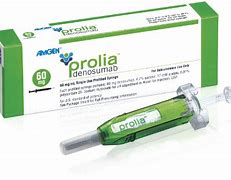
How does Prolia compare with Forteo?
Prolia and Forteo are both used to treat osteoporosis. They have some similar uses and side effects, but they also have some differences.
These medications have different active ingredients and they belong to different groups of drugs. For instance:
Both Prolia and Forteo are given as injections under your skin. Forteo is given as a self-injection once daily. But Prolia is given once every 6 months by a healthcare professional.
There aren’t any studies that have compared these two drugs to each other. But they’re each effective in treating osteoporosis and preventing bone loss.
For more information about how these medications compare with each other, ask your doctor. They can tell you more about benefits and risks of Prolia and Forteo. Your doctor can help you decide which drug is better for your needs.
Megaco (resmi H.248) adalah sebuah implementasi dari Media Gateway Control Protocol arsitektur [1] untuk mengendalikan Media Gateways di Internet Protocol (IP) jaringan dan masyarakat beralih jaringan telepon (PSTN). Dasar umum arsitektur dan antarmuka pemrograman awalnya digambarkan dalam RFC 2805 dan saat ini definisi Megaco spesifik adalah ITU-T Rekomendasi H.248.1.
Megaco mendefinisikan protokol untuk Media Gateway Controller untuk mengontrol Media Gateways untuk mendukung aliran multimedia di jaringan komputer. Hal ini biasanya digunakan untuk menyediakan Voice over Internet Protocol (VoIP) jasa (suara dan fax) antara jaringan IP dan PSTN, atau seluruhnya dalam jaringan IP. Dalam protokol tersebut merupakan hasil kolaborasi dari kelompok kerja MEGACO Internet Engineering Task Force (IETF) dan International Telecommunication Union ITU-T Study Group 16. IETF standar aslinya diterbitkan sebagai RFC 3015, yang kemudian digantikan oleh RFC 3525.
Istilah Megaco adalah sebutan IETF. ITU kemudian mengambil alih kepemilikan protokol dan versi IETF telah direklasifikasi sebagai bersejarah. ITU telah menerbitkan tiga versi H.248.1, terbaru pada bulan September 2005. H.248 mencakup bukan hanya spesifikasi protokol dasar di H.248.1, tetapi banyak ekstensi didefinisikan di seluruh H.248 Sub-series. Pelaksanaan lain Media Gateway Control Protocol arsitektur ada dalam protokol MGCP bernama sama. Ini digunakan melalui antarmuka yang sama dan mirip dalam aplikasi dan fungsi pelayanan, bagaimanapun, adalah protokol yang berbeda dan perbedaan yang mendasarinya membuat mereka tidak cocok.
Yuk, beri rating untuk berterima kasih pada penjawab soal!
How does Prolia work? And how long does it stay in your system?
Prolia works by blocking osteoclasts (certain bone cells) from breaking down bone tissue in your body. This is the drug’s mechanism of action, or how it works.
Specifically, Prolia works by blocking a protein called RANK. The drug attaches to the RANK protein and helps prevent osteoclasts from breaking down bone.
Over time, Prolia helps to improve the density and strength of your bones by slowing bone loss. This lowers your risk for bone fractures.
You’ll get Prolia injections from a healthcare professional once every 6 months. The drug stays in your system and continues to slow bone breakdown over this period of time. Every 6 months, you’ll get another dose of Prolia.
Is Prolia a bisphosphonate?
No, Prolia isn’t a bisphosphonate. Instead, it belongs to a different group of medications called biologics. (Biologic medications are made from living organisms.)
Specifically, Prolia is a monoclonal antibody (a lab-made protein). It works with your immune system to help prevent bone loss.
Bisphosphonates, on the other hand, help increase bone thickness and prevent bone breakdown. They do this by slowing the loss of minerals such as calcium from your bones. They’re commonly used to treat osteoporosis. These types of medications come in forms that are taken by mouth and forms that are given by injection.
A few examples of bisphosphonates include:
If you’d like to know more about using a bisphosphonate for your condition, talk with your doctor.
Thuốc Prolia là thuốc gì?
Thuốc Prolia có thành phần chính là 60mg, hàm lượng 60mg. Thuốc Prolia là loại một kháng thể đơn dòng được tạo ra để nhắm vào mục tiêu, thuốc chỉ tiêu diệt một số tế bào nhất định trong cơ thể và có khả năng bảo vệ các tế bào khỏe mạnh khỏi bị hư hại.
Chống chỉ định của thuốc Prolia
Không dùng thuốc Prolia cho bệnh nhân mẫn cảm với bất kỳ thành phần nào trong thuốc.
Chỉ định của thuốc Prolia
Thuốc Prolia được sử dụng để tăng khối lượng xương ở nam giới bị loãng xương có nguy cơ gãy xương cao, cũng như ở phụ nữ và nam giới có nguy cơ gãy xương cao do điều trị một số loại ung thư.
Thuốc Prolia có thành phần dược chất chính là một kháng thể đơn dòng dùng khá phổ biến trong điều trị loãng xương, mất xương, ung thư di căn vào xương... Vậy thuốc Prolia là thuốc gì?
Cách sử dụng thuốc Prolia
Để đặt lịch khám tại viện, Quý khách vui lòng bấm số HOTLINE hoặc đặt lịch trực tiếp TẠI ĐÂY. Tải và đặt lịch khám tự động trên ứng dụng MyVinmec để quản lý, theo dõi lịch và đặt hẹn mọi lúc mọi nơi ngay trên ứng dụng.
Nguồn tham khảo: drugs.com, prolia.com,
Important Safety Information
What is the most important information I should know about Prolia®?
If you receive Prolia, you should not receive XGEVA® (denosumab). Prolia contains the same medicine as XGEVA®.
Prolia® can cause serious side effects (including):
If you have advanced chronic kidney disease (may or may not be on kidney dialysis), Prolia may increase your risk for severe low calcium levels in your blood, which could result in hospitalization, life-threatening events and death. A mineral and bone disorder associated with kidney disease called chronic kidney disease mineral bone disorder (CKD-MBD) may increase your risk for severe low calcium levels in blood. Before you start PROLIA and during treatment, your doctor may need to do certain blood tests to check for CKD-MBD.
Most people with low blood calcium levels do not have symptoms, but some people may have symptoms. Call your doctor right away if you have symptoms of low blood calcium such as:
Serious allergic reactions have happened in people who take Prolia®. Call your doctor or go to your nearest emergency room right away if you have any symptoms of a serious allergic reaction, including low blood pressure (hypotension); trouble breathing; throat tightness; swelling of your face, lips, or tongue; rash; itching; or hives.
Severe jaw bone problems (osteonecrosis) may occur. Your doctor should examine your mouth before you start Prolia® and may tell you to see your dentist. It is important for you to practice good mouth care during treatment with Prolia®.
Unusual thigh bone fractures. Some people have developed unusual fractures in their thigh bone. Symptoms of a fracture include new or unusual pain in your hip, groin, or thigh.
Increased risk of broken bones, including broken bones in the spine, after stopping, skipping or delaying Prolia®. Talk with your doctor before starting Prolia® treatment. After your treatment with Prolia® is stopped, or if you skip or delay taking a dose, your risk for breaking bones, including bones in your spine, is increased. Your risk for having more than 1 broken bone in your spine is increased if you have already had a broken bone in your spine. Do not stop, skip or delay taking Prolia® without first talking with your doctor. If your Prolia® treatment is stopped, talk to your doctor about other medicine that you can take.
Serious infections in your skin, lower stomach area (abdomen), bladder, or ear may happen. Inflammation of the inner lining of the heart (endocarditis) due to an infection may also happen more often in people who take Prolia®. You may need to go to the hospital for treatment.
Prolia® is a medicine that may affect the ability of your body to fight infections. People who have weakened immune systems or take medicines that affect the immune system may have an increased risk for developing serious infections.
Skin problems such as inflammation of your skin (dermatitis), rash, and eczema have been reported.
Bone, joint, or muscle pain. Some people who take Prolia® develop severe bone, joint, or muscle pain.
Do not take Prolia® if you: have low blood calcium; or are pregnant or plan to become pregnant, as Prolia® may harm your unborn baby; or are allergic to denosumab or any ingredients in Prolia®.
What are the possible side effects of Prolia®?
It is not known if the use of Prolia® over a long period of time may cause slow healing of broken bones. The most common side effects of Prolia® in women being treated for osteoporosis after menopause are back pain, pain in your arms and legs, high cholesterol, muscle pain, and bladder infection.
The most common side effects of Prolia® in men with osteoporosis are back pain, joint pain, and common cold (runny nose or sore throat).
The most common side effects of Prolia® in patients with corticosteroid-induced osteoporosis are back pain, high blood pressure, lung infection (bronchitis), and headache.
The most common side effects of Prolia® in patients receiving certain treatments for prostate or breast cancer are joint pain, back pain, pain in your arms and legs, and muscle pain. Additionally, in Prolia®-treated men with nonmetastatic prostate cancer receiving ADT, a greater incidence of cataracts was observed.
These are not all the possible side effects of Prolia®. Call your doctor for medical advice about side effects.
You are encouraged to report negative side effects of prescription drugs to the FDA. Visit www.fda.gov/medwatch, or call 1-800-FDA-1088.
Prolia® is a prescription medicine used to treat osteoporosis in women after menopause who are at high risk for fracture or cannot use another osteoporosis medicine or other osteoporosis medicines did not work well.
Prolia® is a prescription medicine used to increase bone mass in men with osteoporosis who are at high risk for fracture.
Prolia® is a prescription medicine used to treat osteoporosis in men and women who will be taking corticosteroid medicines (such as prednisone) for at least six months and are at high risk for fracture.
Prolia® is a prescription medicine used to treat bone loss in men who are at high risk for fracture receiving certain treatments for prostate cancer that has not spread to other parts of the body.
Prolia® is a prescription medicine used to treat bone loss in women who are at high risk for fracture receiving certain treatments for breast cancer that has not spread to other parts of the body.
Please see Prolia® full Prescribing Information and Medication Guide.
Trước khi sử dụng thuốc Prolia cần lưu ý những gì?
Không sử dụng thuốc Prolia nếu bệnh nhân bị dị ứng với Denosumab hoặc nếu người bệnh có lượng canxi trong máu thấp (hạ canxi máu). Trong khi bệnh nhân đang sử dụng thuốc Prolia thì không nên sử dụng Xgeva - một tên thương mại khác của Denosumab. Để đảm bảo sử dụng thuốc Prolia an toàn, người bệnh hãy nói với bác sĩ nếu có:



